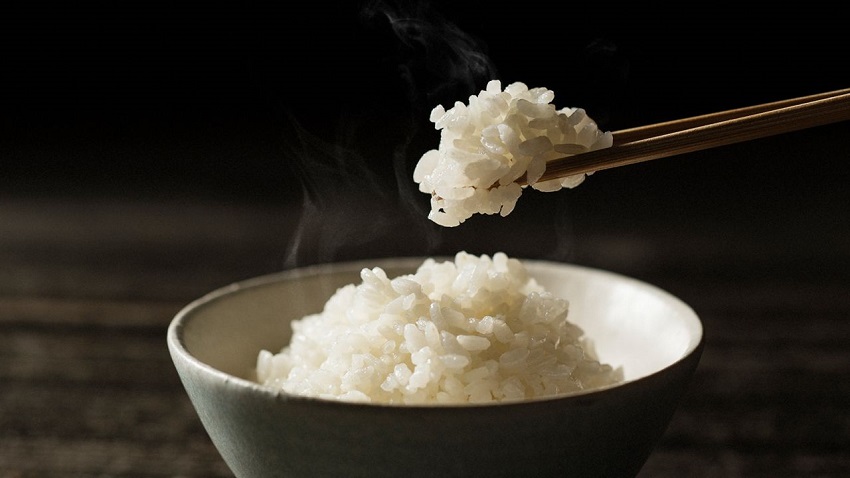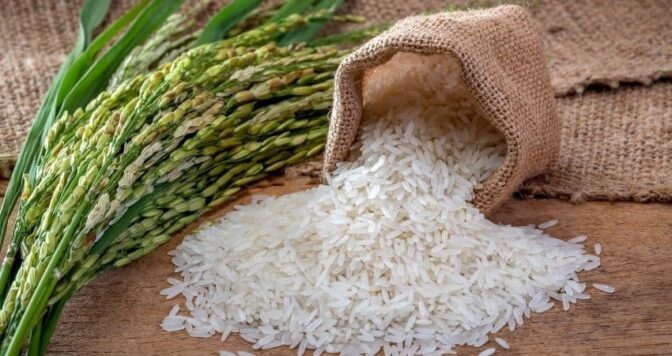In a world where dietary choices are becoming increasingly diverse, the question arises: Can vegans eat rice? Rice, a staple food in many cultures, seems like a simple grain, but understanding its compatibility with a vegan lifestyle requires a deeper look into its origins, processing, and nutritional value. In this article, we’ll delve into the complexities of rice in the context of a vegan diet, addressing common concerns and providing you with the information you need to make informed dietary choices. This content is brought to you by Calvitaminsuit.com.
The Basics of a Vegan Diet
Before we delve into the specifics of rice, let’s quickly recap what it means to follow a vegan diet. Vegans abstain from consuming any animal-derived products, which includes meat, dairy, eggs, and even honey. Their diet is plant-based, centered around fruits, vegetables, grains, legumes, nuts, and seeds. The focus is on consuming nutrient-rich foods that don’t involve exploiting animals in any way.
Rice: A Plant-Based Staple
Rice, a cereal grain that has been cultivated for thousands of years, is a fundamental part of many cuisines around the world. It’s versatile, easy to prepare, and a great source of carbohydrates, which are essential for providing energy. But is rice healthy vegan diet friendly? The answer is a resounding yes! Rice is a plant-based food that vegans can enjoy without any ethical concerns.
The Types of Rice
There are various types of rice available, including white rice, brown rice, basmati rice, jasmine rice, and more. Each type has its own unique taste, texture, and nutritional profile. Brown rice, for example, is less processed and retains its outer bran layer, making it a more nutritious choice as it’s higher in fiber and essential nutrients.
Nutritional Value of Rice
Rice is primarily composed of carbohydrates, making it an excellent energy source. It’s low in fat and sodium, and depending on the variety, it can provide small amounts of protein. While rice alone might not fulfill all your nutritional requirements, it can be combined with other plant-based foods to create balanced and nutritious meals.
Complementing Rice with Proteins
One concern for vegans is obtaining sufficient protein. Rice is considered a low-protein food, but it can be paired with protein-rich plant foods such as legumes (beans, lentils, chickpeas), tofu, tempeh, and seitan. These combinations not only enhance the overall protein content of the meal but also create a satisfying and nutritious dish.
Rice Cultivation and Sustainability
Another aspect to consider when evaluating the vegan-friendliness of rice is its impact on the environment. Rice cultivation, particularly in traditional flooded paddies, can have environmental consequences. However, many sustainable rice cultivation practices are emerging that focus on water management and reducing greenhouse gas emissions.
Is Rice Gluten-Free?
Yes, rice is naturally gluten-free, which is great news for individuals with gluten sensitivities or celiac disease. This makes rice an essential grain for those who need to avoid gluten-containing foods.
Conclusion
In the grand scheme of a vegan diet, rice stands as a welcoming and versatile option. Its compatibility with veganism is clear, and its ability to serve as a canvas for nutritious creations makes it a valuable addition to plant-based meals. Remember, a vegan diet is all about balance and variety, so feel free to explore different rice types and pairings to create satisfying and nutrient-rich meals.
FAQs
- Can rice be the main source of protein for vegans?
Rice alone isn’t a significant source of protein for vegans, but it can be combined with protein-rich foods to create balanced meals.
- Is brown rice better than white rice for vegans?
Yes, brown rice is a more nutritious choice as it retains its bran layer, providing extra fiber and essential nutrients.
- Are there any environmental concerns related to rice cultivation?
Traditional rice cultivation can have environmental impacts, but sustainable practices are being developed to mitigate these issues.
- Can I follow a gluten-free diet as a vegan using rice?
Absolutely! Rice is naturally gluten-free, making it an excellent option for those with gluten sensitivities.
- How can I make rice-based meals more exciting on a vegan diet?
Get creative with your rice dishes by incorporating a variety of vegetables, plant-based proteins, and flavorful spices to enhance taste and nutrition.
